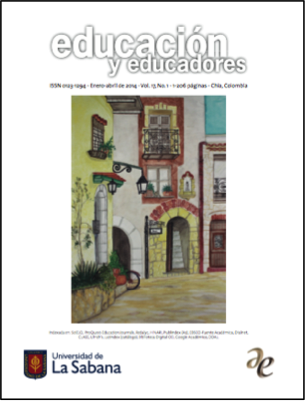Origin, Development and Decline of Individual Skills in Times of Uncertainty
Keywords:
learning, occupational qualifications, education, education and employment, globalizationAbstract
In the course of the globalization processes of the past three decades, the focus on skill-based education and training has become a strong educational and labor- policy tool in which conceptual, evaluative and economic precepts are emphasized above and beyond fundamentals of a multidisciplinary, educational and social nature. The purpose of this article is to broaden awareness of this situation and its repercussions on the nature and development of individual skills.
The methodological strategy, which is highly qualitative, was structured on an analysis and discussion of three closely related core topics: a) the conceptual framework of skills; b) skills and standardized systems (from third parties); and c) the development of skills (starting with the individual himself).
It is noted that, far from encouraging learning throughout life, inducement of the skill-based training approach can discourage it, besides to being ineffective and quite costly. Contributions are made to the theory of skills, based on their origin and development as biological, psychological and socially integrated constructs that provide elements to improve policies for education and training beyond the conventional conceptual frameworks in this field.
Downloads
Published
How to Cite
Issue
Section
License
1. Proposed Policy for Journals That Offer Open Access
Authors who publish with this journal agree to the following terms:
-
This journal and its papers are published with the Creative Commons License CC BY 4.0 DEED Atribución 4.0 Internacional. You are free to share copy and redistribute the material in any medium or format if you: give appropriate credit, provide a link to the license, and indicate if changes were made; don’t use our material for commercial purposes; don’t remix, transform, or build upon the material.






